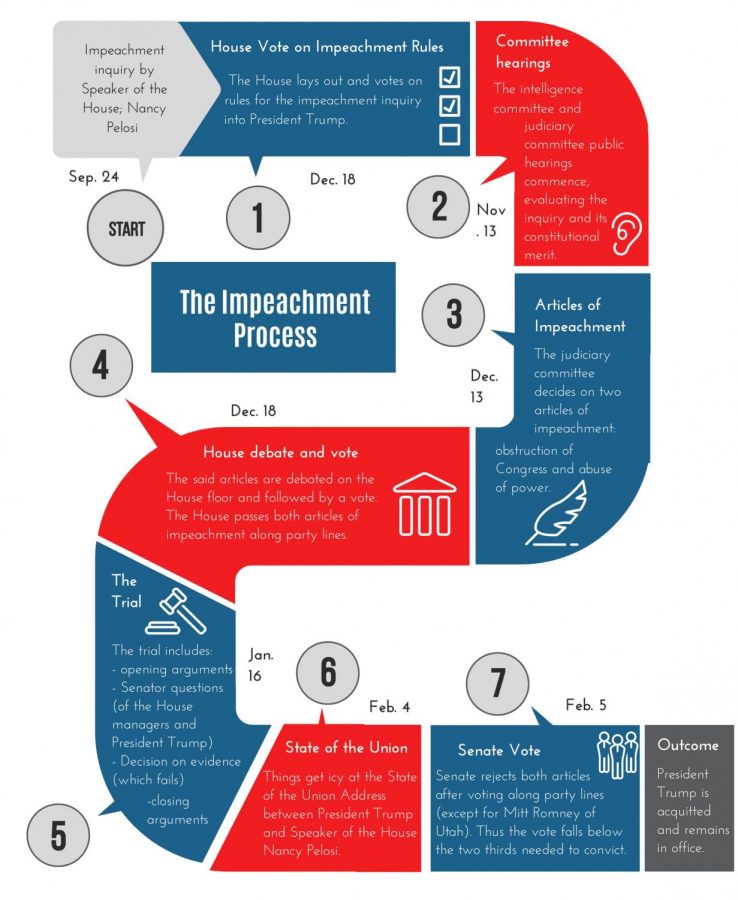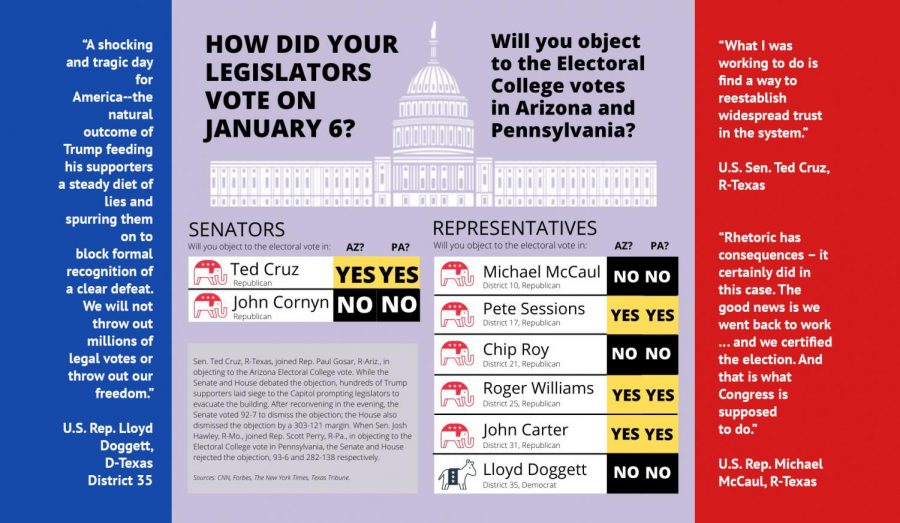With a new decade comes political history being made. Until Dec. 18, 2019, there had only been two presidents in U.S. history who had been formally impeached. On Dec. 18, president Donald Trump became the third, joining Andrew Johnson (1869) and Bill Clinton (1999). President Richard Nixon was facing impeachment in 1974 but resigned before his impeachment reached the house floor for a vote.
House Speaker Nancy Pelosi initiated the process when she announced a formal impeachment inquiry on Sept. 24. The inquiry centered on two charges: (1) that President Trump abused his power by withholding foreign military aid from Ukraine in order to force them to dig up “dirt” on political rival Joe Biden and (2) that he obstructed Congress by not complying with their investigations. Trump’s defense is that the House never accused him of an actual crime.
After private committee meetings and testimonies, the House of Representatives voted on the rules for President Trump’s impeachment inquiry. After more meetings, the judiciary committee decided on the two articles of impeachment: obstruction of Congress and abuse of power. The articles of impeachment then went to the House floor for debate and a vote. The House voted separately on the articles but only needed to pass one of the articles in order for the president to be impeached.

The majority of the House voted yes for both articles on Dec. 18, and, as a result, Trump was officially impeached. After the House managers and Trump’s defense team spent about a month preparing, the Senate trial began on Jan. 21, with Chief Justice John G. Roberts Jr. presiding.
The four-month impeachment saga came to a close on Feb. 5 when the Senate voted to acquit Trump on both charges. Although he was not removed from office, Trump’s impeachment was historic. Sen. Mitt Romney of Utah was the lone Republican senator who crossed party lines to cast a vote to convict Trump on the abuse of power charge.
“The president’s purpose was personal and political,” Romney said as he spoke to the Senate on Feb. 5 announcing his vote. “Accordingly, the president is guilty of an appalling abuse of the public trust.”
Romney’s vote marked the first time a senator has voted to convict a president from the same political party of an impeachment article.
McCallum students said that the impeachment saga provided one more example that the United States government is fueled by politically charged feuds and personal agendas instead of the interests of the American people.
“It’s safe to say that the political climate in the United States has been very tense,” sophomore Marina Garfield said. “The tensions continue to grow the closer we get to the 2020 elections.”
Sophomore John Hamlet, who told MacJournalism that he had been following the impeachment since the House trial began, agreed that the impeachment reflects a larger political divide, but felt that it probably won’t impact the 2020 election much if at all.
“The country is as divided as always, with the Democrats already not voting for him and the Republicans, for the most part, following him,” Hamlet said.
“It’s going to just get crazier the closer we get to the election.”

Garfield said it was difficult to read that Trump had been acquitted. She questioned if the Senate trial was even a trial at all.
“The acquittal makes me dubious of the Senate’s morality,” Garfield said. “Although I am disappointed, I am unfortunately not surprised.”
Some students who believe Trump did wrong still feel he should remain president.
“Trump was clearly guilty of abusing his power for personal interest” junior Marley Gattis said. “I’m happy he was put on trial for the crime. For the well being of America I’m glad he wasn’t removed from office.”















